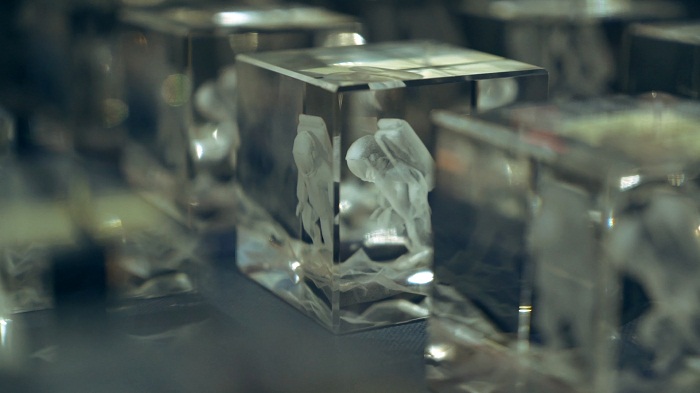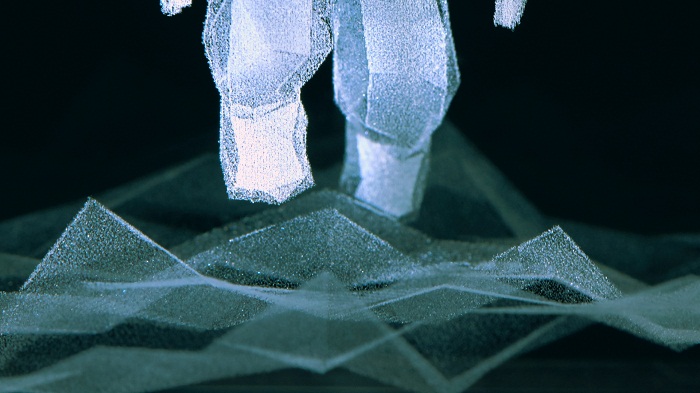This Thing Of Ours, a new design and animation studio, has lately launched Sub-Surface, an experimental animated film inspired by hi-tech tourist tat.
Sub-Surface struck to This Thing of Ours director Alex Robinson on a trip to Brighton, where he saw tourists buying personalised crystal engravings of themselves or their pets using a process that involved customers having their faces scanned, then etched inside crystal mementos.

The etching is achieved by two laser beams focusing on the same spot, shattering a tiny fraction of the crystal and creating a dot. Building up the dots creates a three-dimensional image that’s highly detailed and catches light in fascinating ways. Realising that shooting an animated sequence of multiple sub-surface cubes could look remarkable, Alex decided to create a beautiful ‘thing’ to showcase the kind of work This Thing Of Ours studio plans to make.
Robinson explained, “Sub-Surface is a perfect example of This Thing Of Ours using existing processes to do new things that catch the eye, in a world saturated with samey content. Sub-surfacing is an incredible technique that’s crying out to be used for more than getting your dog’s face engraved. We love using unusual starting references as starting points, taking things out of the computer, then putting them back in again.”
The one-minute film portrays an astronaut performing an infinite run cycle on a low poly surface that’s perfectly looped and timed to his run cycle. Broken into two halves, the first half of the film shows the process, and the second half reveals the product – a shimmering loop with levels of detail and colour. He said, “The inspiration for the film came around the anniversary of the moon landings and I thought, what better than an astronaut to launch our studio.”
The process began with animator Norik Imami designing and animating the astronaut, and the run cycle. The low poly design lent itself perfectly to the sub-surface process, as once engraved, it reacts beautifully when light is passed through it, picking up on all the angles and the form.
The team decided to create the animation at 12FPS, which meant the run cycle needed to be exactly two seconds, using 24 crystal cubes. Each individual frame was then exported and sent to a subsurface engraving company, who laser-etched the two individual cubes. Following this step, came the shoot. Robinson worked with Chris Stevens, the photographer, who helped light and photograph each frame using a variety of macro lenses and lighting setups.
Getting this right proved to be incredibly challenging, as the crystal cubes were small, highly reflective, and had slight variations in size and shape, which meant aligning each frame to a specific registration point. After painstaking work, the finished sequences were then placed after some behind the scenes ‘making of’ footage shot by Ben Sayer, to help unpack how the unusual effect was achieved. The last step was sound design, handled by Howard Whiddett, who composed a moody soundscape using a wide range of layers, textures and sounds taken from the NASA audio library.
The BTS footage was done by Ben Sayer, while the sound design by created by Howard Whiddett.


